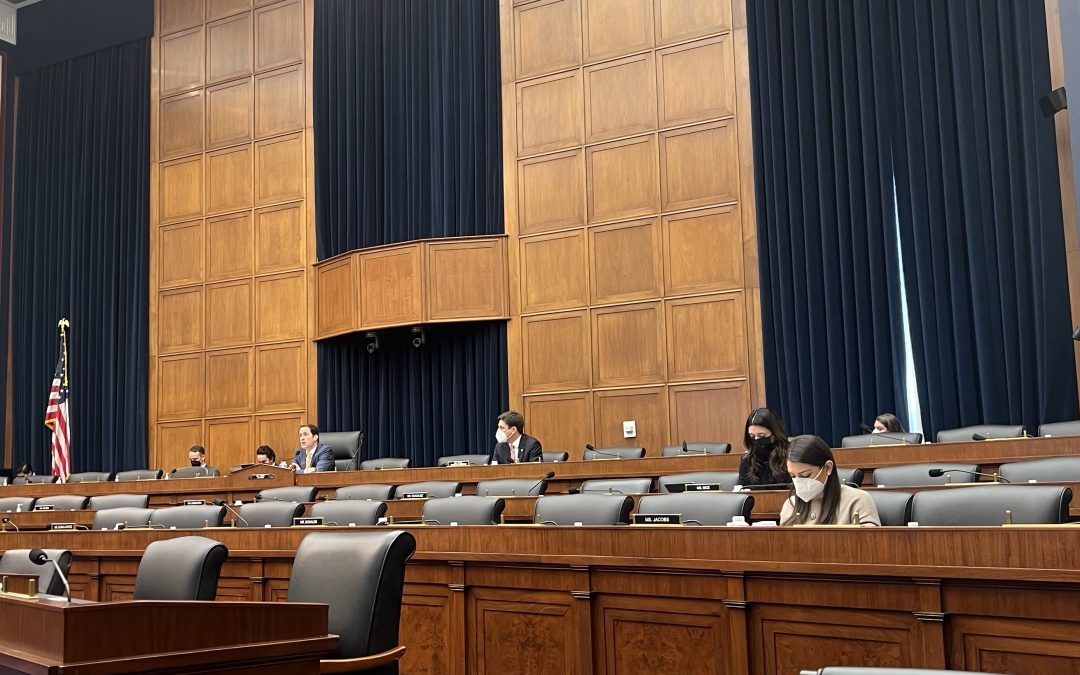WASHINGTON — Lawmakers and experts suggested ways Thursday that the federal government could reduce racial economic disparities, including increasing school choice, creating trust accounts for newborns and providing relatives of Black World War II veterans with previously withheld GI Bill benefits.
Speaking before the House Select Committee on Economic Disparity and Fairness in Growth, House Majority Whip James Clyburn, D-S.C., emphasized that the racial wealth gap has a long history in the United States.
Clyburn is one of the co-sponsors of legislation to restore the benefits of the GI bill to Black veterans of World War II, who did not receive the full extent of their benefits because of racial discrimination.
“Our bill seeks to provide the descendants of Black World War II veterans some of the GI benefits their families should have enjoyed,” Clyburn said. “This would be one step toward righting a wrong in addressing the wealth gap.”
Ian Rowe, senior fellow at the conservative think tank American Enterprise Institute, emphasized the importance of setting up children for economic success.
“We cannot ignore the fact that the racial disparities that we’re seeking to close originated long before they show up for adults,” Rowe said.
A 2019 study from the National Bureau of Economic Research found that 41% of White children with parents in the top 20% of income level will remain there, while only 18% of Black children will do the same.
The study also found that even when controlling for parental income, Black boys have lower incomes as adults than White boys in 99% of census tracts.
Rowe contended that education and family life are significant determinants of achievement, asserting that households with two married parents are less likely to fall into poverty. He also emphasized the significance of proper education, advocating for school choice.
“The lack of access to high quality schools is one of the fundamental elements that impedes the ability of a kid, for any race, to get on the first rung for success,” Rowe said.
Darrick Hamilton, founding director of the Institute for the Study of Race, Power and Political Economy at The New School, called for more government action.
“Poverty really is a political choice. We choose to allow poverty to exist,” Hamilton said. “In other words, we have the mechanisms to literally eliminate it.”
In addition to guaranteed income, Hamilton advocated for “baby bonds,” or trust accounts created for all newborns in the United States that grow each year depending on family income. Sen. Cory Booker, D-N.J., sponsored a bill about a year ago for the federal government to invest in baby bonds.
Committee members and witnesses said the COVID-19 pandemic has exacerbated racial inequalities. Black Americans face a risk of death from COVID-19 at 1.9 times the rate of white Americans, Hispanic Americans face 2.1 times the risk and Native Americans at 2.2 times, according to the Centers for Disease Control and Prevention.
Janet Murguía, president and CEO of UnidosUS, a Latino civil rights and advocacy group, pointed out that that “more than half of Latinos are unable to earn a single paid sick day through their jobs,” though they often account for a large portion of “essential workers” during the pandemic.
Murguía called for Congress to pass the Build Back Better Act and secure the child tax credit, as well as allow for increased home ownership by providing down payment assistance and canceling student debt.
President Joe Biden on Wednesday signaled that the child tax credit and canceling student debt are likely to be cut, as he tries to get congressional approval for a pared-down version of the plan.
“Latinos are more likely to die from COVID, less likely to have health insurance, and more likely to struggle to make ends meet,” Murguía said. “Importantly, the systems that exacerbate inequality and keep Latinos from building wealth can be addressed.”


